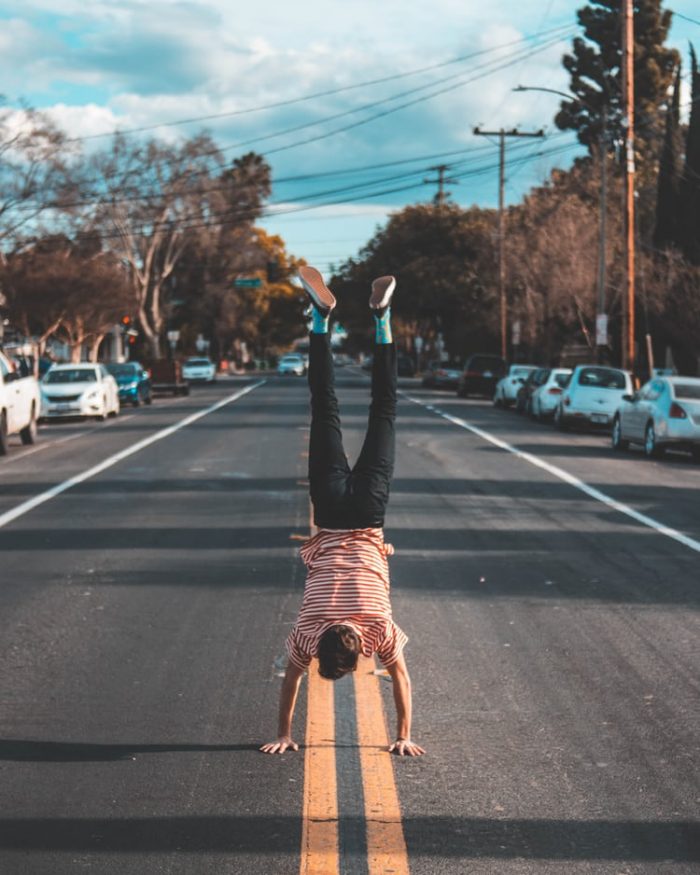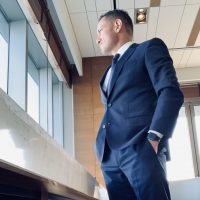Yoga came as a gift and brought with it an unexpected transformation.
It changed my body and it changed the way I breathe. It changed the way I move through the world. “You can tell the days you do yoga and the days you don’t,” a friend observed.
But this gift was not the kind I thought it was. It was like a Trojan Horse, except without deception in the giving.
You see, suddenly, injury swept my gift away when one morning gravity and slick ice conspired to sever my infraspinatus, supraspinatus, and subscapularis tendons. One doctor remarked, “That’s not a falling on the ice injury, that’s a falling out of an airplane injury.” And a few weeks later I had open rotator-cuff and bicep-tendon reattachment surgery.
The first words my surgeon said to me were, “This is going to suck.”
I think she was talking about the physical pain, the muscle atrophy, the agony of sleeping on my back, and a year’s worth of physical therapy—but I didn’t mind any of that. I didn’t even mind that my ski season was cut short and that I would miss a summer of downhill biking, my passion—these pills I could swallow.
It actually sucked because I lost my practice. I lost my moving meditation. My gift was taken away. And the surgeon was right, this sucked. It was awful.
Yoga was my daily reset. It helped me clear and calm my mind. It kept my body in shape. And when times were tough, it was a life-ring.
It was, and is, the one time of the day that I offer a prayer—the one time of the day when I feel closest to the universe. It was, and is, the one time of the day when I feel like someone is listening.
To be clear: this was not a tragic event. Shoulder surgery is nothing by comparison to what others may endure and I never, not even for a moment, felt sorry for myself. In fact, I considered the injury and my recovery a challenge—another life test.
And so I learned how to cook, eat, drive, and even write with my left hand. While friends skied the Rockies or biked Whistler without me, I made good use of the time and explored other aspects of life.
But without yoga, I also sat too often and ate too often. I drank too often and in eating and drinking too often, I got too soft.
Six months passed before my shoulder had healed enough to gently return to my practice and healthier habits. But this time yoga wasn’t the same. I found that I had different mindset—and this is why.
When I practice now, my shoulder is always near the edge of re-injury. It hurts and I’m highly aware of it in every posture, in every movement.
However, this knowing, this pain is a strange kind of blessing. It creates a newfound awareness that helps me see in every position an opportunity to find something that yesterday was out of reach—a place to explore that edge and make the shoulder stronger.
Before the injury, yoga was something to look forward to, but also something I felt I had to “get through”—with the reward coming at the end. There were postures that I hated and would suffer through to get to the ones that I loved. In this way it was like life, at least the way that most of us live it—suffering through one thing to get to something more pleasant.
Now, I instead find myself asking in each position, “What can I get out of this moment?” There are no more hated or favorite postures—there’s only an opportunity to have the richest possible experience. And not in the next posture, but right where I’m at.
You see, I didn’t ask that question before. But now when I’m in standing splits or twisted half-moon, I no longer try to breathe through the discomfort. I no longer wait to arrive at something else—I instead open to a new space that I’ve yet to move into. I ask myself, “What can I find in this posture to grow? How can I have the richest possible experience, right now?”
And so that brings me to my point: What if we applied this same mindset to everyday life? What if we brought the same intention to all the moments that make up the day?
What if we asked, “How can I make the most out of this commute or this walk or this uncomfortable situation? How can I have the richest possible experience from this conversation? From this intimacy?”
If we train ourselves to ask this question, and to ask it constantly—if we can rewire our minds to become curious about every moment—then life becomes not about enduring the suffering of one thing to arrive at another, but instead about finding the arrival in everything.
We don’t grow in the postures we love. We don’t even grow in the postures we hate. We grow in the ones we accept.
This is how yoga came to me like a Trojan Horse, waiting for something to spring the latch, something like a shoulder injury to let loose what meant to come out of it—a daily practice of awakening into a deeper awareness of the possibility in every moment.
I’m not saying anything new here. You’ll hear the same message at any weekend spiritual retreat, find it in Buddhist teachings, or read it in any book about mindfulness. But sometimes it’s not a teacher’s words, but a student’s experience that is relatable.
Sometimes it’s not the professional guru who gets to you, but instead a regular kind of guy who works in an office, practices yoga every evening, and doesn’t know the Sanskrit name for more than a few postures.
 Share on bsky
Share on bsky






Read 8 comments and reply